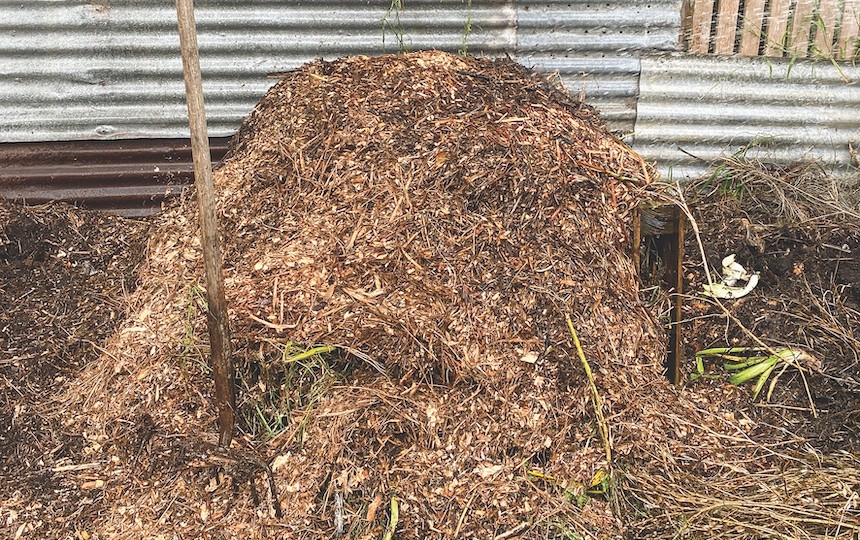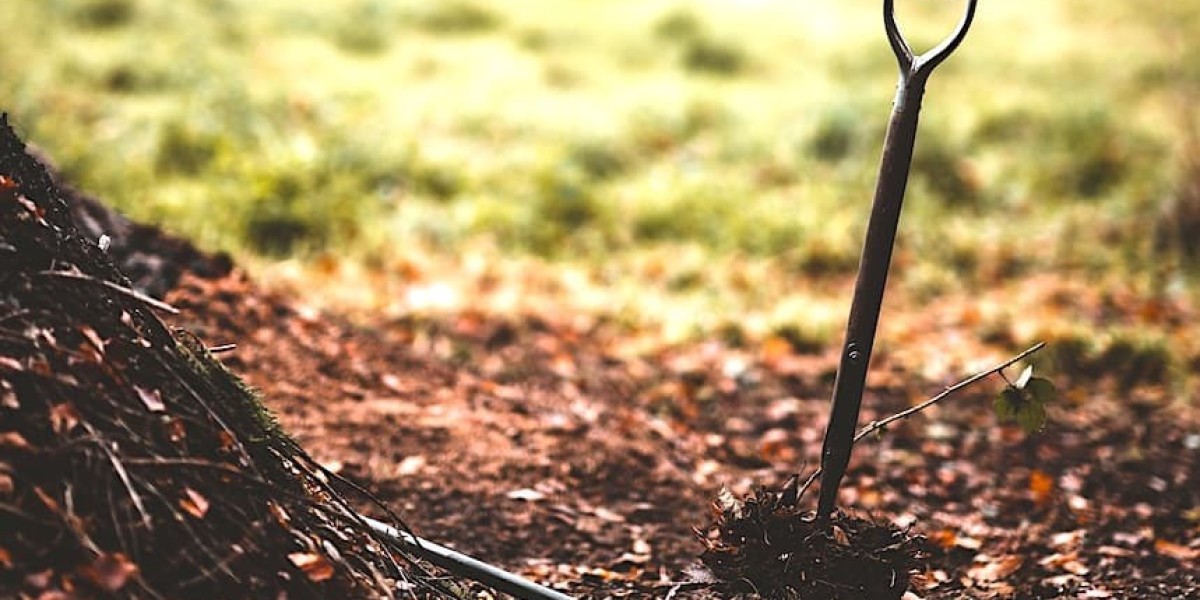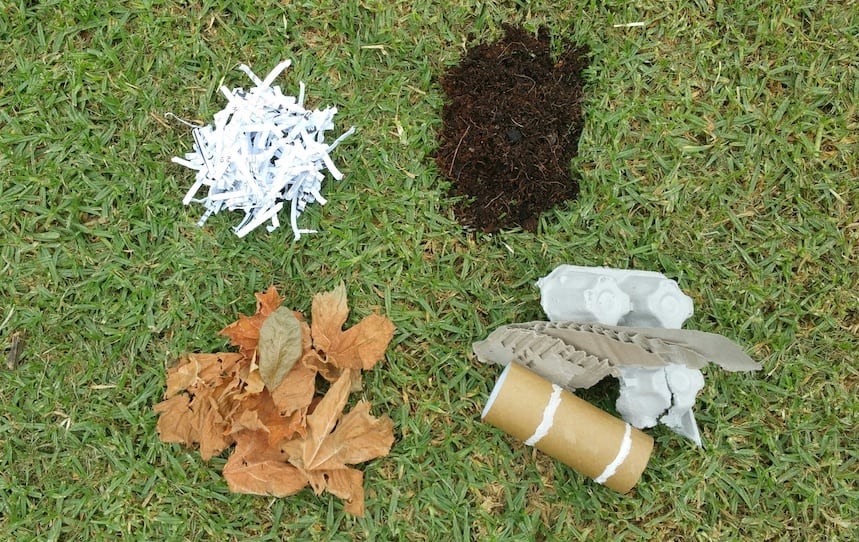For some reason I’ve always had a bit of a block against making quick compost.
I’ve made slow compost, many times – piles that sit there for months or years, doing their thing without much poking and prodding, kitchen scraps occasionally being tossed on top.
I’ve read books on quick compost, I’ve talked about quick compost. I’ve just never had too much success actually making it – quickly!
This all changed after a composting workshop I attended, where I learnt that making quick compost is pretty simple. And it’s ready to go in a matter of weeks.

Collect your materials
Firstly, you need to collect all of your materials for the whole pile. This was always a major stumbling block for me. Where do I get all of this material? Your pile needs to be at least a cubic metre, two is actually better to start with, and it will compost down. And what are those pesky carbon/nitrogen ratios again?
Let’s get this out of the way first. Someone discovered that if you have around 30 bits carbon (generally brown plant matter, dry grass, woodchips and straw, etc) to 1 bit nitrogen (green materials, meats, etc) then the pile will be in just the right C:N ratio for composting organisms to thrive.
Step 1: Collect manure (nitrogen)
If you have animals this will be fairly simple. Take a trip to the paddock with your wheelbarrow and start shoveling. Put all your poo in a pile. If your animals come to you or a central place (for feeding, husbandry, milking, bedding, etc) then this will be even simpler.
If you’re on a small urban block, you might have chickens, therefore you have chicken manure. However, for quick compost you need a fairly decent pile, all at once, so you might want to visit some of your farmer friends, and gather manure at their place. They’ll probably be delighted to get rid of some of it.




